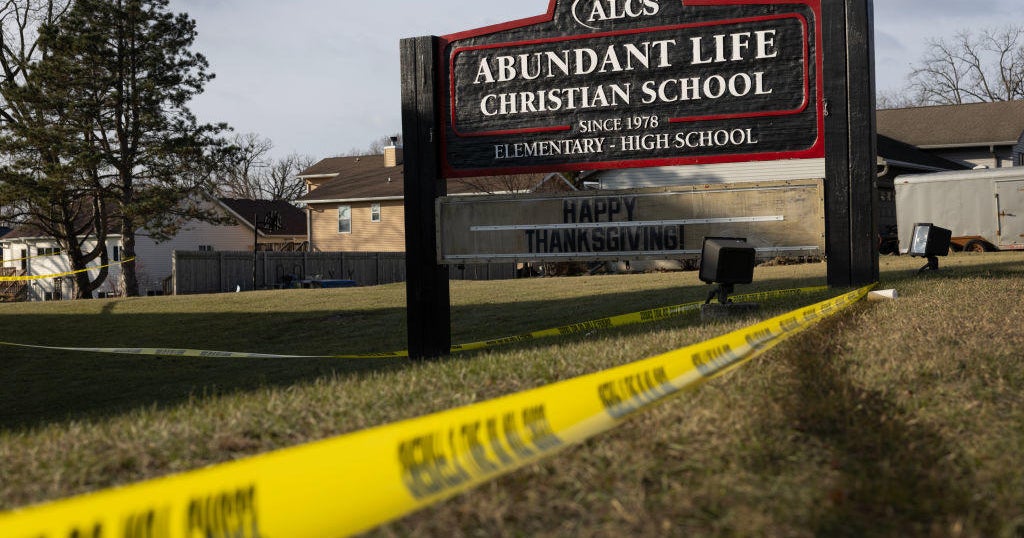CBS News
HELOC vs. home equity loan: Which is best for debt consolidation?

Getty Images
One positive development in the recent run-up of prices is that many homeowners now have substantially more equity. The average mortgage holder now holds $299,000 in equity, of which $193,000 is tappable, meaning they could borrow that much while still having 20% equity in their home.
Having this equity can be valuable, such as if you want to put a large down payment on your next home. But it can also be helpful to use now, when used wisely. For example, if you have high-interest debt, like credit card debt, you might benefit from taking out a home equity line of credit (HELOC) or a home equity loan to consolidate debt.
However, HELOCs and home equity loans are not interchangeable. HELOCs provide a line of credit that you can borrow from as needed, typically with a period of interest-only payments, followed by interest-plus-principal payments, with variable interest rates. Meanwhile, home equity loans provide a lump sum at a fixed interest rate, with set principal-plus-interest payments from the start.
There can be pros and cons to both options when it comes to using your home equity for debt consolidation, as we’ll explore here.
Start by reviewing your home equity loan options here to learn more.
HELOC vs. home equity loan: Which is best for debt consolidation?
Here’s how to tell which option could be better for you when looking to consolidate your debt.
When a HELOC could be best for debt consolidation
Some scenarios where a HELOC could be best for debt consolidation include when:
- You want flexibility: “A HELOC makes the most sense when you need flexibility in your borrowing. During the draw period, you can borrow against your available balance as needed, pay it down, and borrow again. In other words, you can borrow exactly the amount you need when you need it rather than taking out a lump sum loan,” says Leslie Tayne, founder and head attorney at Tayne Law Group.
- You need to temporarily borrow a small amount: “As far as debt consolidation goes, a HELOC may be preferred when debts are relatively low compared to equity in the home, and it can act as a bridge financing until credit improves to turn to another source, such as private loans,” says Aleksandar Tomic, assistant dean for strategy, innovation, and technology at Boston College.
- You want to defer principal payments and have a plan to pay off the balance: “If a borrower refinances existing debts with a HELOC featuring an interest-only period, the new loan payment can be substantially lower than their existing loan payments during the interest-only period,” says Timothy Holman, senior vice president, head of residential lending, Northwest Bank. However, you want to be sure you can pay the principal off, whether that’s by using a HELOC as bridge financing until you can find a loan with better terms, or perhaps you can soon pay off the full loan with cash. “Some borrowers may elect to make the lower interest-only payments on a HELOC if they know that they will receive a large sum of money to pay it off in the future, like from selling the home, inheritance, settlement, bonuses, etc.,” says Holman.
Learn how a HELOC could help you consolidate your debt now.
When a home equity loan could be best for debt consolidation
While HELOCs can provide advantages in several situations, home equity loans are sometimes better for debt consolidation, such as when:
- You want to make progress on your debt payoff: One issue with HELOCs is that you might be drawn in by being able to make interest-only payments, but that doesn’t reduce your debt balance. But with a home equity loan, “you pay off a bit of your debt every month. That’s important if your goal is to pay everything off and be debt-free. You know exactly what your monthly payment is going to be going forward and how long it will take to pay off the” home equity loan, says Adam Spigelman, senior vice president at Planet Home Lending.
- You want to consolidate all at once: “If you know the exact amount of debt you need to consolidate and don’t anticipate needing additional funds soon, a home equity loan provides a lump sum that you can use to clear your debts all at once, without the temptation to borrow more,” says Tayne.
- You want stability: Some borrowers prefer variable rates with HELOCs, such as if they hope rates go down in the future. But others want the predictability of a fixed-rate home equity loan. While home equity payments of principal plus interest are generally more than interest-only payments on an equal-sized HELOC, “the borrower doesn’t have to worry about future rate changes,” says Holman, and they know exactly what their principal payments look like from the start. “If a borrower doesn’t have clear plans to pay off the principal in the future,” then a home equity loan is the more disciplined choice, says Holman.
The bottom line
Both HELOCs and home equity loans have their advantages, and the choice to use home equity borrowing for debt consolidation depends on factors like your debt payoff timeline and the size of your debt. “Choosing the right home loan is very situational. Your credit score, how much you want to borrow, your income, and your financial goals all come into play,” says Spigelman.
CBS News
Teacher, student killed in Wisconsin school shooting identified

A teacher and student killed in a shooting earlier this week at a school in Madison, Wisconsin, were identified Wednesday by authorities.
The Dane County Medical Examiner’s Office said in a news release provided to CBS News that 42-year-old Erin West and 14-year-old Rubi Vergara were fatally shot Monday morning at Abundant Life Christian School.
Preliminary examinations determined the two died of “homicidal firearm related trauma.” Both were pronounced dead at the scene, the medical examiner said.
An online obituary on a local funeral site stated Vergara was a freshman who leaves behind her parents, one brother, and a large extended family. It described her as “an avid reader” who “loved art, singing and playing keyboard in the family worship band.”
West’s exact position with the school was unclear.
The medical examiner also confirmed that a preliminary autopsy found that the suspected shooter, 15-year-old Natalie Rupnow — a student at the same school — was pronounced dead at a local hospital Monday of “firearm related trauma.” Madison Chief of Police Shon F. Barnes had previously told reporters that Rupnow was pronounced dead while being transported to a hospital.
Police had also previously stated that she was believed to have died from a self-inflicted gunshot wound.
The shooting at the private Christian K-12 school was reported just before 11 a.m. Monday. In addition to the two people killed and the shooter, six others were wounded.
Police said the shooting occurred in a classroom where a study hall was taking place involving students from several grades.
A handgun was recovered after the shooting, Barnes said, but it was unclear where the gun came from or how many shots were fired. A law enforcement source said the weapon used in the shooting appears to have been a 9 mm pistol.
and
contributed to this report.
CBS News
Last-minute government funding bill in limbo after opposition from Trump, others

Watch CBS News
Be the first to know
Get browser notifications for breaking news, live events, and exclusive reporting.
CBS News
“CBS Evening News” headlines for Wednesday, Dec. 18, 2024

Watch CBS News
Be the first to know
Get browser notifications for breaking news, live events, and exclusive reporting.




